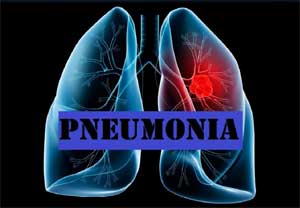- Home
- Editorial
- News
- Practice Guidelines
- Anesthesiology Guidelines
- Cancer Guidelines
- Cardiac Sciences Guidelines
- Critical Care Guidelines
- Dentistry Guidelines
- Dermatology Guidelines
- Diabetes and Endo Guidelines
- Diagnostics Guidelines
- ENT Guidelines
- Featured Practice Guidelines
- Gastroenterology Guidelines
- Geriatrics Guidelines
- Medicine Guidelines
- Nephrology Guidelines
- Neurosciences Guidelines
- Obs and Gynae Guidelines
- Ophthalmology Guidelines
- Orthopaedics Guidelines
- Paediatrics Guidelines
- Psychiatry Guidelines
- Pulmonology Guidelines
- Radiology Guidelines
- Surgery Guidelines
- Urology Guidelines
Use of antipsychotics linked to increased risk of pneumonia

Patients taking antipsychotics might be at increased risk of pneumonia, according to a systematic review and meta-analysis published in the Journal of Psychopharmacology.
Olubanke Dzahini, the Institute of Pharmaceutical Science at King’s College London, and colleagues investigated the association of both first-generation antipsychotics and second-generation antipsychotics exposure to the incidence and mortality of pneumonia. They also examined the risk of pneumonia in patients who took one of six antipsychotics (clozapine, haloperidol, olanzapine, quetiapine, risperidone, and zotepine) compared with those who did not take these medications. For the purpose, they included 14 studies with a total of 206,899 patients, after performing a search of several databases.
Also Read: Antipsychotics not effective in ICU delirium
Key Findings:
- Compared with those who had not taken antipsychotics, those who took first-generation antipsychotics had a 69% increased risk of pneumonia, and those who took second-generation antipsychotics had a 93% increased risk.
- Those who had taken any of the antipsychotics included in the analysis had an 83% increased risk of pneumonia.
- Antipsychotic use did not significantly affect the fatality rate from pneumonia compared with no antipsychotic use.
- When the researchers analyzed the data on the six antipsychotics, they found that patients who took these medications had a significantly increased risk of pneumonia compared with those who did not take the medications.
Also Read: Atypical antipsychotics less harmful than Haloperidol for delirium in MI : BMJ
Although antipsychotic use was associated with a higher risk of pneumonia, the researchers stopped short of claiming causality, citing a lack of data from randomized, controlled trials and a failure of observational studies to control for relevant confounders like tobacco use and weight. Yet they suggested ways that antipsychotics may contribute to risk.
“Antipsychotics could increase the risk of aspiration pneumonia through multiple mechanisms, including specific impairment of the protective swallowing and cough reflexes, sedation, hypersalivation, and changes in pharyngeal and laryngeal muscle tone,” the researchers wrote.
The researchers emphasized the importance of considering patients’ existing risk factors for pneumonia, including older age, chronic respiratory disease, cerebrovascular disease, dysphagia, obesity, and smoking. “Clinicians need to be vigilant for the occurrence of pneumonia in all patients who commence antipsychotics. The potential risk needs to be balanced out against the potential benefits of antipsychotic treatment in an individual,” they wrote.
For further reference log on to https://doi.org/10.1177/0269881118795333

Disclaimer: This site is primarily intended for healthcare professionals. Any content/information on this website does not replace the advice of medical and/or health professionals and should not be construed as medical/diagnostic advice/endorsement or prescription. Use of this site is subject to our terms of use, privacy policy, advertisement policy. © 2020 Minerva Medical Treatment Pvt Ltd